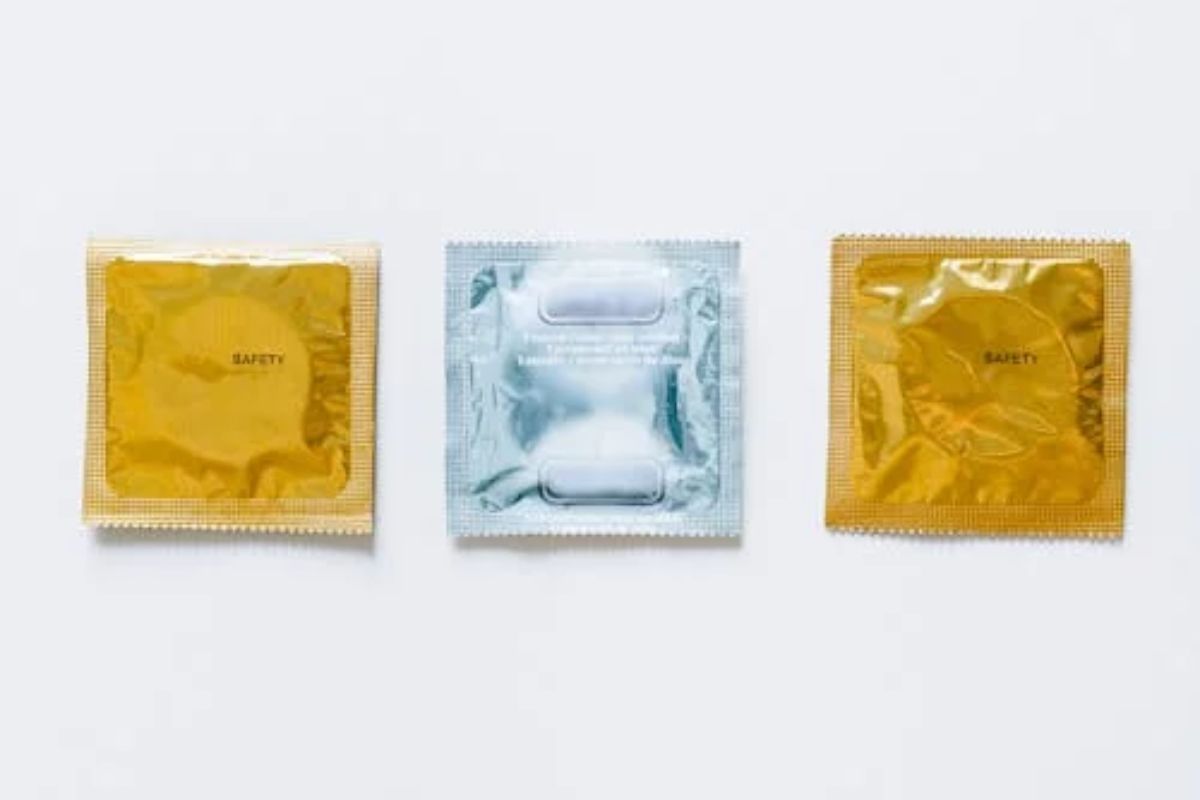A study found high levels of toxic PFAS chemicals in popular condom and lubricant brands. Conducted by Mamavation, a consumer advocacy organization, the research highlights health risks.
PFAS, or per- and polyfluoroalkyl substances, are man-made chemicals used globally since the 1940s. They are known for their water- and grease-resistant properties, present in products like non-stick cookware, water-repellent clothing, stain-resistant fabrics, firefighting foams, and food packaging. However, their presence in reproductive health products raises serious concerns due to the sensitive contact areas.
Name of condom & lubricant brands contain PFAS chemicals
The study, by an Environmental Protection Agency-certified laboratory, detected PFAS in reproductive health products like Trojan Ultra Thin Condoms and K-Y Jelly Classic Water-Based Personal Lubricant. PFAS levels were especially high in Trojan Ultra Thin Condoms and Union Standard Ultra Thin Lubricated Male Latex Condoms. Other tested lubricants, like Lola Tingling Mint Pleasure Gel, also had these chemicals.
Linda Birnbaum, a science adviser for Mamavation and former head of the EPA’s toxicology program, emphasized the potential dangers of PFAS in these products. “Because condoms are an exposure to the most sensitive areas on the human body for both men and women, I would strongly recommend the industry identify and remove these chemicals immediately,” Birnbaum stated. The penis and vagina are highly vascular, meaning they can absorb chemicals more readily than other body parts.
The research found that some products had twice the levels of PFAS as others. For example, Trojan Ultra Thin Condoms for Ultra Sensitivity had nearly double the level of PFAS compared to other brands.
Similarly, Union Standard Ultra Thin Lubricated Male Latex Condoms had high levels of these chemicals. The tested lubricants, including K-Y Jelly Classic Water-Based Personal Lubricant and Lola Tingling Mint Pleasure Gel, also contained PFAS.
Teresa Heinz from the Green Science Policy Institute confirmed the likelihood of these chemicals contaminating the female reproductive tract through condom use. “The female reproductive tract will be contaminated by some of the chemicals in condoms,” Heinz stated in the report.
PFAS are called “forever chemicals” because they do not break down naturally and can accumulate in the human body, linked to health issues like cancer, liver damage, thyroid problems, birth defects, and reduced immunity. The presence of PFAS in condoms and lubricants is particularly concerning due to direct contact with sensitive areas.
Health Risks and Regulatory Gaps
Despite the widespread use of PFAS in consumer products, including clothing and food packaging, federal regulations remain limited. PFAS are reproductive toxicants and endocrine disruptors linked to low birth weight, reduced sperm counts, pregnancy-induced high blood pressure, infertility, and shorter breastfeeding. They can interfere with the body’s hormonal systems, potentially leading to reproductive issues, thyroid disease, and developmental problems in children. There is evidence that exposure to certain PFAS is associated with higher cholesterol levels, increasing the risk of cardiovascular diseases.
The EPA-certified lab testing, commissioned by Mamavation, checked 29 reproductive health products for fluorine, a PFAS marker. The study found PFAS likely used in condoms to repel moisture and liquids. However, this chemical presence poses health risks, especially for products designed for direct contact with sensitive areas.
Health Effects of PFAS “Forever Chemicals”:
- Reduced immunity and vaccination response
- Increased risk of allergies and asthma in young children
- Affected growth, learning, and behavior in infants and older children
- Higher cholesterol levels
- Metabolic diseases such as obesity and diabetes
- Cardiovascular disease
- Lowered chances of pregnancy in women
- Reduced male fertility
- Increased risk of kidney and testicular cancers
- Endocrine disruption
- Disrupted thyroid function
- Increased risk of acute lymphoblastic leukemia in children
Biomonitoring evidence from the CDC shows that PFAS are present in all Americans, meaning these health impacts can affect most people.
Mamavation is calling for immediate action to remove PFAS from condoms and lubricants to prevent health risks. The organization urges manufacturers to prioritize consumer safety by eliminating these chemicals from their products. “Condoms expose the most sensitive areas on the human body, so I strongly recommend the industry identify and remove these chemicals immediately,” Birnbaum reiterated.
Keep Reading
Lightning strikes leave two children without their mother in West Bengal
In Jammu, lightning strikes kill livestock, compensation not adequate say shepherds
Indigenous communities in J&K struggle with increasing lightning risks to livelihoods
Follow Ground Report for Environmental News from India. Connect with us on Facebook, Twitter, Koo App, Instagram, Whatsapp and YouTube. Write us at GReport2018@gmail.com and subscribe to our free newsletter.
Don’t forget to check out our climate glossary, it helps in learning difficult environmental terms in simple language.









